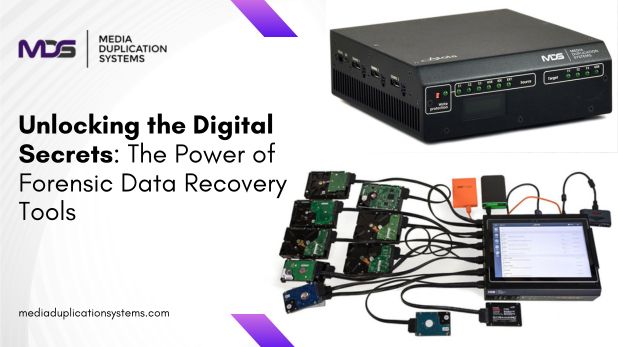Unlocking the Digital Secrets: The Power of Forensic Data Recovery Tools
Posted by Michelle Boyce on 2023 Sep 12th
In the modern era, data loss can have serious implications for people and businesses alike. When crucial data becomes inaccessible or corrupted, the need for effective recovery tools arises. Forensic data recovery tools play a vital role in retrieving lost or compromised data while maintaining its integrity. This article explores the world of forensic data recovery tools, their importance, types, comparison, best practices, challenges, and future trends.
What is Forensic Data Recovery?
Forensic data recovery refers to the process of retrieving data from digital storage devices in a manner that preserves its evidentiary value. It entails using professional techniques and tools to extract data from a variety of sources, including hard discs, solid-state drives, mobile devices, and cloud storage. The purpose of forensic data recovery is to investigate and analyze the recovered data for legal, investigative, or data restoration purposes.
Importance of Forensic Data Recovery
Forensic data recovery holds immense importance in various domains. In criminal investigations, it helps law enforcement agencies retrieve crucial evidence from digital devices. In the corporate world, it enables the recovery of valuable data, preventing financial losses and preserving business continuity. Moreover, forensic data recovery is essential in civil litigation, cybersecurity incidents, and data breach investigations.
Legal and Ethical Considerations
Forensic data recovery is subject to legal and ethical considerations. The recovery process must comply with relevant laws, regulations, and privacy rights. Investigators should obtain proper authorization, follow established guidelines, and document their actions accurately. Adhering to ethical standards supports the recovery process's integrity and the credibility of evidence in legal processes.
Challenges in Forensic Data Recovery
While forensic data recovery tools are highly valuable, they come with their own set of challenges. Some common obstacles include:
Encryption and Password Protection:
Encrypted or password-protected data may pose significant hurdles during the recovery process, requiring specialized tools and techniques.
Fragmented Data:
Recovering fragmented data and reconstructing it in a meaningful way can be complex and time-consuming.
Device Compatibility:
With the ever-evolving landscape of storage devices and file systems, ensuring compatibility with a wide range of devices can be challenging.
Conclusion
Forensic data recovery tools play a critical role in retrieving and analyzing data from various storage devices. They enable the recovery of lost or corrupted data for investigative, legal, or data restoration purposes. By understanding the importance, types, comparison factors, best practices, and challenges associated with forensic data recovery, individuals and organizations can make informed decisions and enhance their data recovery capabilities.





